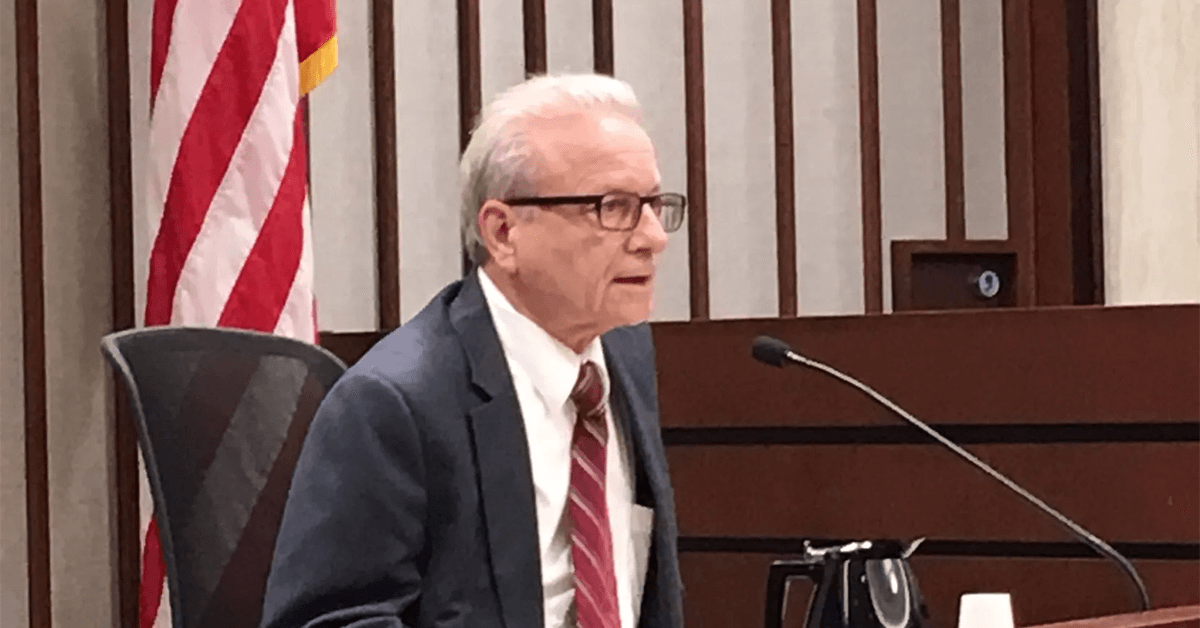Federal Prison Sentence for Michigan Cannabis Business Owner for Tax Evasion

Ryan Richmond, the owner of the Warren-based medical cannabis dispensary Relief Choices LLC, has been sentenced to 24 months in prison for tax evasion and obstructing an IRS investigation, according to the U.S. Department of Justice.
Federal authorities revealed that Richmond engaged in extensive tax evasion practices. He reportedly paid operating expenses in cash and routed credit card payments through an unrelated third-party bank account to hide the company's gross receipts. This scheme allowed him to avoid paying approximately $1.1 million in taxes between 2011 and 2014.
Richmond was convicted in federal court in September. The case highlights the complexities and legal ambiguities surrounding the cannabis industry in Michigan during the early years of its medical cannabis law.
Legal Ambiguities in Michigan's Cannabis Industry
Michigan voters approved the state's medical cannabis law in 2008. However, due to ongoing court battles, the first medical cannabis operating licenses were not issued until 2018. Relief Choices operated in this legal gray area, technically outside the state's formal regulatory framework, yet did not face enforcement from state authorities amid the ongoing legal disputes.
Banking Challenges and Cash Operations
Federal prosecutors noted that Richmond's business primarily used cash, a common practice among cannabis businesses at the time due to their exclusion from the traditional banking market. While most cannabis businesses now bank with credit unions willing to accept the associated risks, cash operations remain prevalent.
Federal Tax Obligations
Despite the legal ambiguities, cannabis businesses are still obligated to pay federal income taxes on all income, including from illegal sources, under Section 61(a)(2) of the Internal Revenue Code. This precedent was set in 1961 in the case of James v. United States, involving union official Eugene James, who faced restitution but not criminal charges for tax evasion.
Richmond's case is particularly severe. In addition to his 24-month prison sentence, he must pay $2.8 million in restitution to the IRS, which is more than twice the amount of taxes he owed. Richmond failed to file a personal tax return in 2014 despite Relief Choices generating $1.8 million in revenue, prompting an IRS audit that revealed further discrepancies.
Historical Context and Section 280E
The effective tax rate for cannabis businesses can be as high as 75% due to Section 280E of the IRS Tax Code, which disallows the deduction of business expenses for income from controlled substances listed under Schedule I, including cannabis. This section was established after Jeffrey Edmondson, a drug dealer, successfully claimed business expense deductions in 1981, leading Congress to close this loophole by enacting Section 280E in 1982.
Potential Changes in Federal Law
Efforts are underway to reclassify cannabis as a Schedule II drug, which would eliminate Section 280E and potentially improve cash flow for dispensaries. This change could also encourage more cannabis business operators to comply with tax regulations, altering the cost-benefit analysis currently influenced by high tax rates.
Three Arrested in Van Buren County Dispensary Break-In

Early Sunday morning, three men were apprehended following a break-in at the TruLeaf Dispensary in the Village of Lawrence. A fourth suspect remains at large, according to the Van Buren County Sheriff's Office.
The incident began around 3:30 a.m. when the dispensary's owner observed several individuals inside the building via surveillance footage. Authorities were promptly notified, and deputies arrived on the scene to find multiple suspects attempting to carry bags of cannabis and other products out of the facility.
Upon spotting the deputies, the suspects retreated back into the building. Three of them then exited through an unmonitored door and fled into the nearby woods.
Law enforcement managed to apprehend the first suspect as he attempted to reach a getaway vehicle. A second suspect was found hiding inside the dispensary. The third suspect was initially spotted walking along I-94 near County Road 681 before disappearing into the woods. He was later seen walking north along the same highway and was subsequently taken into custody.
The suspects, aged between 18 and 23, are all residents of the Battle Creek area. They now face multiple charges including burglary, forced entry, larceny in a building, possession of burglary tools, and resisting and obstructing police. The vehicle used in the crime was identified as stolen from Battle Creek.
Efforts to locate the fourth suspect are ongoing. The Van Buren County Sheriff's Office is urging anyone with information about the incident to contact them at 269-657-3101 or Silent Observer at 269-343-2100.
CRA Levels Formal Complaint Against Flavor Galaxy, LLC

The Cannabis Regulatory Agency (CRA) of Michigan has issued a formal complaint against Flavor Galaxy, LLC, underlining serious allegations of regulatory breaches. Located in Hazel Park, this licensed cannabis processing facility faces multiple accusations which, if proven, could result in severe penalties including fines, license suspension, or revocation.
According to the complaint, discrepancies were found between the product descriptions on Flavor Galaxy's consumer packaging and the actual contents as recorded in Michigan's statewide monitoring system, Metrc. Notably, the "Amnesia Watermelon Freeze Hybrid" pre-rolls were labeled as containing "Premium Refined Cannabis Distillate and Cannabis Derived Terpenes," whereas the Metrc entry showed only shake/trim with basic safety compliance testing for potency.
Further issues were uncovered during an unannounced CRA inspection on February 7th, 2024. It was revealed that the facility also used non-FDA approved botanical terpenes in their products, contrary to claims on their packaging. In addition, numerous inventory inconsistencies were noted, including untagged products and significant discrepancies between physical stock and Metrc records. For instance, during follow-up visits, the CRA found untagged vape cartridges and pre-rolls, mismanagement of waste products, and inadequate record-keeping for product formulations and adjustments.
These actions violate multiple provisions of the Michigan Regulation and Taxation of Marihuana Act (MRTMA) and associated administrative rules, leading to 18 counts in the formal complaint. These include inaccuracies in entering information into the statewide monitoring system, failure to maintain records, improper tagging and tracking of marijuana products, and misleading advertising.
Flavor Galaxy, LLC has the opportunity to respond to these allegations by requesting a hearing within 21 days from the notice date. They may also opt for a compliance conference to discuss these findings and demonstrate current adherence to state regulations. This case underscores the importance of compliance in the regulated cannabis industry, not only to adhere to legal standards but also to maintain the safety and trust of consumers.
Another Michigan Woman Caught Smuggling Cannabis to the UK at Logan Airport

In a recent turn of events at Logan Airport, authorities intercepted a substantial amount of cannabis bound for the United Kingdom. The latest seizure involved a 70-pound cache of cannabis, found with a British woman attempting to depart for London this past Sunday evening. This incident follows closely on the heels of a similar case, where a woman from Michigan was caught with 74 pounds of cannabis, also destined for London.
According to a spokesperson from the Suffolk District Attorney's Office, the recent arrest occurred approximately six weeks after the first, signaling a notable pattern of smuggling attempts through this route. The spokesperson quoted Suffolk District Attorney Kevin Hayden, who expressed a stern warning against such illegal activities. "These two arrests in a fairly short time span should send a clear message that attempting to transport cannabis through Boston to the U.K. is highly ill-advised," Hayden stated.
The street value of cannabis in the United Kingdom is notably high, fetching around $5,000 per pound. This places the estimated value of the seized 70 pounds of cannabis at about $350,000.
The individual apprehended on Sunday, 19-year-old Fareedat Folunsho, faces charges of trafficking between 50 and 100 pounds of cannabis. During her arraignment in the East Boston session of the Boston Municipal Court, Folunsho pleaded not guilty and was subsequently detained on a $1,500 bail at the Nashua Street Jail. Her legal representation could not be reached for comment. She is scheduled for a probable cause hearing on May 21st.
The arrests highlight the stringent enforcement of drug trafficking laws at federal and international levels, despite the legality of cannabis in Massachusetts. Cannabis remains illegal federally in the U.S. and is also prohibited in the United Kingdom, underscoring the legal complexities surrounding its transport and sale across international borders.
These cases serve as a significant reminder of the ongoing challenges and legal consequences facing individuals who attempt to smuggle cannabis internationally, particularly from regions where it is legally permissible to areas where it is not.
The Case of Odor as Probable Cause: People of the State of Michigan v. Jeffery Armstrong

In a landmark case that has reverberated through Michigan's legal landscape, the issue of whether the odor of cannabis alone can constitute probable cause for police to conduct searches has come under intense scrutiny. This pivotal legal debate unfolded following an incident in Detroit, where police officers cited the smell of cannabis as the reason to order Jeffery Armstrong out of his vehicle, ultimately leading to his arrest after discovering an illegal firearm under the seat he occupied.
Background of the Case
The legal journey began when Detroit police detected the scent of cannabis emanating from a vehicle in which Jeffery Armstrong was a passenger. Acting on this observation, they conducted a search which revealed an illegal gun. Armstrong challenged the search, arguing that since Michigan voters had legalized recreational cannabis, the mere presence of its odor should no longer be sufficient grounds for such police actions.
Legal Proceedings
The trial court sided with Armstrong, ruling that the odor of cannabis alone, in the context of its legalization, does not meet the threshold for probable cause necessary for searches and seizures. This decision was upheld by the Michigan Court of Appeals. The matter was then escalated to the Michigan Supreme Court, drawing significant attention from legal experts and advocacy groups.
Amicus Briefs and Legal Opinions
Highlighting the broader implications of this case, the Cato Institute and the Institute for Justice submitted an amicus brief supporting Armstrong's position. They argued that allowing searches based solely on the smell of a legally permissible substance could lead to unconstitutional practices, undermining the intent of Michigan's electorate to alleviate overcriminalization. This stance underscores a critical examination of how law enforcement practices must evolve in response to changing legal and social landscapes.
Constitutional and Legal Challenges
This case taps into fundamental questions about the Fourth Amendment, which protects citizens from unreasonable searches and seizures. Advocates argue that strict adherence to constitutional guarantees is essential, especially when the legality of substances like cannabis evolves. The legal discourse focuses on ensuring that probable cause is not merely speculative but based on clear evidence that aligns with both legal standards and contemporary societal norms.
Implications for Law Enforcement
The outcome of this case has significant ramifications for law enforcement protocols. It challenges officers to adapt to the nuances of laws that have shifted due to voter initiatives and societal changes. Training and operational guidelines may need revisiting to ensure that police actions remain within the bounds of the law while effectively addressing public safety.
Conclusion
As Michigan navigates the complexities introduced by the legalization of cannabis, the case of Jeffery Armstrong serves as a crucial benchmark for assessing the balance between individual rights and law enforcement duties. The Michigan Supreme Court's forthcoming decision will not only impact Armstrong but also set a precedent that will influence the interpretation of probable cause in the context of legalized substances across the state.
For more detailed legal insights, you can access the complete amicus brief filed by the Cato Institute and the Institute for Justice here.
Michigan Supreme Court Reviews Allegations of Open Meetings Act Violations in Cannabis Licensing

The Michigan Supreme Court is currently deliberating on a lawsuit that alleges violations of the Open Meetings Act (OMA) by Warren's Marijuana Review Committee during its medical cannabis licensing process. The case, Pinebrook LLC et al. vs. City of Warren and Livwell Michigan LLC et al., originates from a legal challenge by several companies that were denied medical cannabis dispensary licenses.
The dispute centers around the actions of the Marijuana Review Committee, which is accused of conducting 16 private sessions in breach of the OMA and infringing upon due process rights. The committee, composed of former council members and city officials, evaluated over 60 applications and suggested 15 for approval. The decision-making process, conducted without public input or transparency in how these recommendations were made, has sparked controversy.
The City Council approved these recommendations with a majority vote following a swift public meeting, a move criticized by former councilpersons who opposed the lack of accessible applicant information discussed in the committee's private meetings.
At the heart of the legal battle, a previous ruling by former judge Carl Marlinga found the committee in violation of the OMA, leading to the invalidation of the issued licenses. However, this decision was overturned in 2022 by the Michigan State Court of Appeals, which deemed the committee advisory and not subject to the OMA, thereby reinstating the licenses.
During the Supreme Court proceedings, plaintiff's attorney Alan Greene argued that the committee was intentionally established to sidestep public oversight and should be recognized as a governmental body involved in policymaking. In contrast, the city's representation, led by attorney Andrea Pike, maintained that the committee served purely in an advisory capacity and its composition did not constitute a quorum of the council, thus exempting it from the OMA.
The justices expressed concerns about the potential for governmental bodies to create subcommittees to avoid public accountability, questioning the broader implications of the appellate court's interpretation of what constitutes a governing body.
The Supreme Court's forthcoming decision will have significant implications for the Open Meetings Act and the transparency of government processes related to cannabis licensing in Michigan. The date for the verdict remains unspecified.


 Helpful Links
Helpful Links